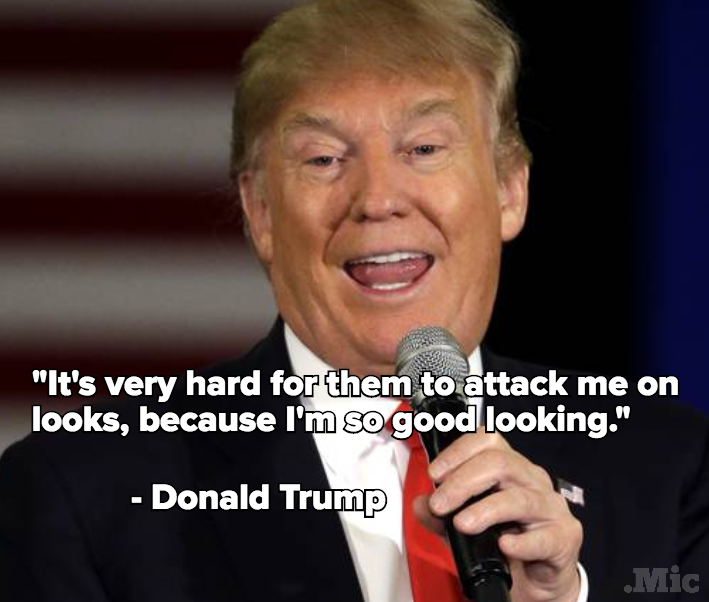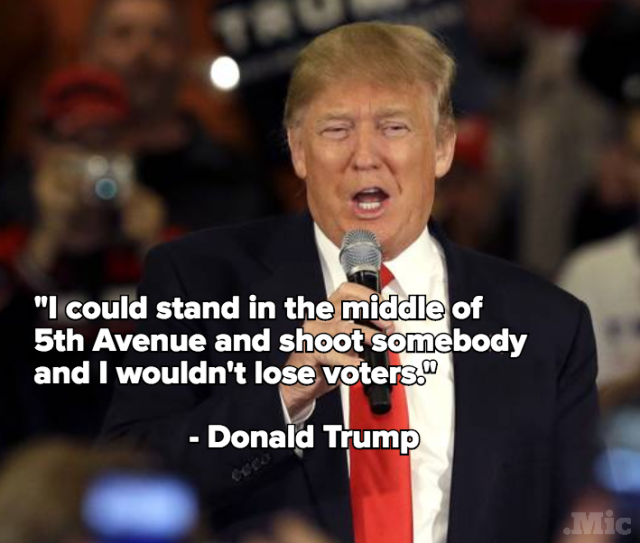Does anyone truly believe that a single individual can encapsulate the essence of an era? Donald Trump, the 45th President of the United States, has undeniably become a cultural phenomenon, his words echoing through news cycles and social media feeds, leaving an indelible mark on the collective consciousness. His pronouncements, whether delivered from the gilded halls of Trump Tower or the podium of a campaign rally, have consistently sparked debate, laughter, and often, bewilderment. His style, a unique blend of bombast, self-promotion, and a seemingly unshakeable confidence, has proven to be both captivating and controversial.
The very mention of his name conjures a constellation of opinions, reflecting the polarized landscape of contemporary America. Love him or loathe him, one cannot deny the magnetic pull of his persona, a force that has redefined the boundaries of political discourse and the very nature of public perception. From the boardroom to the Oval Office, Trump's journey has been a masterclass in leveraging the power of communication, turning every utterance into a headline, every policy debate into a spectacle.
| Category | Details |
|---|---|
| Full Name | Donald John Trump |
| Born | June 14, 1946 (age 77) in Queens, New York City, New York, U.S. |
| Political Party | Republican |
| Occupation | Businessman, Television Personality, Author, Politician |
| Known For | 45th President of the United States (2017-2021), Real Estate Developer, Author of "The Art of the Deal," Host of "The Apprentice" |
| Education | Fordham University, University of Pennsylvania (Wharton School of Finance) |
| Spouse(s) | Ivana Zelnkov (m. 1977; div. 1992), Marla Maples (m. 1993; div. 1999), Melania Knauss (m. 2005) |
| Children | Donald Jr., Ivanka, Eric, Tiffany, Barron |
| Website | Official Website |
His rise to power was nothing short of cinematic. From a real estate magnate with a penchant for luxury and self-promotion, he morphed into a reality television star, captivating audiences with his bravado and business acumen on "The Apprentice." This trajectory laid the groundwork for an unprecedented shift, as he seamlessly transitioned into the political arena, challenging the established order and defying conventional wisdom. It was a spectacle, a performance, and a carefully crafted image that resonated with a segment of the population yearning for a different kind of leader.
His entry into the political arena was not just a campaign; it was a cultural phenomenon. His rallies became events, attracting crowds eager to witness the spectacle, to hear the pronouncements that would reverberate across the globe. His use of social media, particularly Twitter, revolutionized political communication, allowing him to bypass traditional media outlets and speak directly to his supporters. His words, often delivered with blunt force and a disregard for political correctness, became his signature, solidifying his persona as an outsider, a disruptor, a man unafraid to speak his mind.
The impact of his presidency remains a subject of intense debate. His supporters point to economic growth, tax cuts, and judicial appointments as significant achievements. His detractors cite his rhetoric, his policies, and his actions as divisive and damaging to the nation's reputation. However, regardless of one's political affiliation, it is undeniable that Trump's presidency was a period of profound change, leaving a lasting impact on American society and its place in the world.
Donald Trump's ability to capture attention is undeniable. He's a master of the soundbite, the memorable quote, the phrase that sticks in the mind. His words are often funny, sometimes shocking, and always, undeniably, Trumpian. From the boardroom to the campaign trail, his ability to command attention is a hallmark of his public persona. The simple fact that a vast library of quotes exists is a testament to this fact.
The sheer volume of memorable statements attributed to Trump is astounding. The man is box office. The humorous twist makes it feel like a pledge wrapped in entertainment. His words have been dissected, analyzed, and debated by political commentators, academics, and the general public alike. Some quotes are celebrated for their bluntness, others for their comedic value, and still others for their controversial nature. They are a reflection of his personality, his worldview, and his unique approach to communication.
One could argue that the enduring fascination with Donald Trump stems from the fact that he is, in many ways, an enigma. His words are often unexpected, his actions unpredictable. He defies categorization, refusing to conform to the norms of political correctness or the expectations of traditional leadership. This unpredictability is part of his allure, fueling a constant state of anticipation, a sense that anything is possible.
Here are some of the moments that have defined his public image and shaped the narrative surrounding his time in the political spotlight. These are the phrases that have become synonymous with his name, the soundbites that have echoed through news cycles, and the moments that continue to spark debate and discussion.
Consider, for instance, his campaign slogan, "Make America Great Again." This phrase, emblazoned on hats and banners, became a rallying cry, a symbol of hope and nostalgia for those who felt left behind by the changing times. It was a bold statement, a promise of a return to a perceived golden age, and it resonated with a significant segment of the American electorate.
Another quote that has become indelibly linked to Trump is his declaration that he would build a wall on the border with Mexico and make Mexico pay for it. This promise, delivered with characteristic certainty, became a central tenet of his campaign, a symbol of his commitment to border security and his willingness to challenge the status quo. The phrase, though never fully realized in the way he promised, continues to be a topic of conversation.
Then there are the more lighthearted moments, the ones that offer a glimpse into his personality. One can't ignore the humor. From the self-deprecating to the outright outlandish, these moments provided a counterpoint to the more serious pronouncements, allowing him to connect with audiences on a different level. The line between serious and satire has often been blurred.
One can find a mix of sharp sarcasm and wit in abundance with the quotes that are either fun regarding his success or statements that are considered more outrageous or controversial, the variety is there. "We're going to protect Christianity" is one example. These are moments, that continue to fuel discussions and amuse audiences around the world, providing insights into the complex and often contradictory nature of his public persona. These are the moments that have solidified his place in history.
It is important to remember that the interpretation of these quotes is often subjective. What one person finds humorous, another may find offensive. What one person sees as bold and decisive, another may see as reckless and impulsive. The quotes themselves are merely words, but the meaning they carry is determined by the context in which they are delivered, the audience to whom they are directed, and the lens through which they are viewed.
The sheer volume of commentary, analysis, and debate surrounding Donald Trumps pronouncements underscores their impact. It is impossible to ignore the role he has played in shaping the political and cultural landscape. His words have become a currency, a tool, and a reflection of a deeply divided society.
So, what are we to make of these words? Are they mere soundbites, ephemeral pronouncements destined to fade into the annals of history? Or do they represent something more profound, a reflection of a shifting world, a society grappling with complex issues of identity, power, and belonging? One thing is certain: the words of Donald Trump, whether you love him or hate him, have left an undeniable mark on the 21st century. His humor and his audacity are undeniable facets of his enduring appeal.


